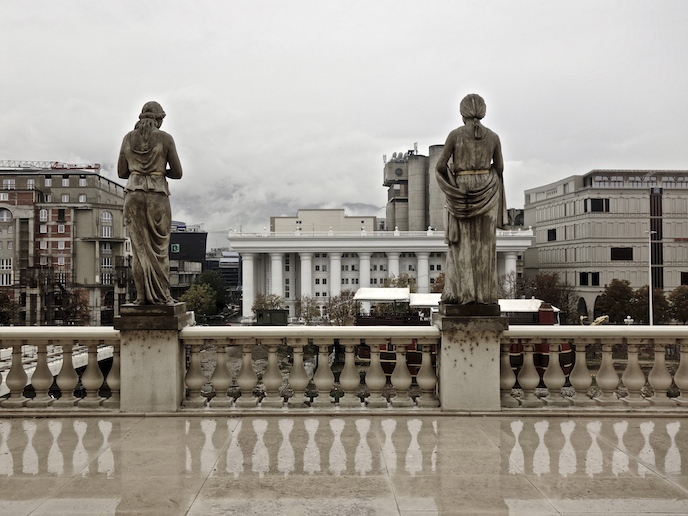Copies of past glories cause controversy in the present
Technological advancements and better knowledge about history make it increasingly possible to recreate the buildings and treasures of the past for the present day. But care needs to be taken over how we shape the way people now and into the future view the past. REPLICAS’ Research fellow Kalliopi Amygdalou, with support from the Marie Skłodowska-Curie programme, researched examples of historical reproductions in Athens in Greece, Skopje, in the Republic of North Macedonia and Istanbul in Turkey. She looked at how the reconstruction of buildings like the National Theatre and the Officers Hall in Skopje fitted together with other revivalist architectural work that was carried out by the previous government, to redefine the whole city’s urban identity. Amygdalou also analysed the reconstruction of selected Ottoman buildings in Istanbul, such as the medrese of Hagia Sophia. On a smaller scale, the researcher looked at copies of museum artefacts like the Alexander Sarcophagus in Istanbul and its copy in Skopje and the Parthenon Marbles in London and their copies in Athens. “Reconstruction creates new matter and new evidence based on little information and is therefore very open to manipulation or distortion,” Amygdalou found. “It is easy to advertise to a general public compared to archaeological or preservation work. It is therefore more usable in the hands of populist politicians, many of which are in power today.”
Identity politics
Amygdalou had studied the relationship between architecture and nation-building in south-east Europe, but it was when she was living in Turkey in 2013 during the Gezi Park protests that she began noticing how copies became part of identity debates. In the protests, which spread throughout Turkey, at least eight people died and 8 000 were injured, according to a Turkish doctors’ association quoted in The Guardian. The trigger was the reconstruction of the Ottoman barracks on Taksim Square in Istanbul, remembers Amygdalou: “This was the first example that made me think about what reconstruction meant for both its supporters and its opponents. Meanwhile my home country Greece was in an intense dispute with North Macedonia over the ownership of ancient Macedonian heritage.” Supervised at the Hellenic Foundation for European and Foreign Policy by Thanos Veremis, Professor Emeritus of Political History at the University of Athens, Amygdalou conducted fieldwork, interviewed architects and heritage workers and examined archives. She set out to explore the politicisation of copies in a region in which empires such as the Macedonian, Roman, Byzantine and Ottoman were eventually replaced by nation-states. These also have been involved in turbulent times. Amygdalou’s findings on Skopje were part of an exhibition that she co-curated in Athens, titled ‘The Future as a Project, Doxiadis in Skopje’, and that featured in a documentary. Heritage can never be neutral; politics will always be involved, concluded the REPLICIAS project, but it should be discussed and debated in a transparent way, with the involvement of educated experts. The researcher points to the Venice Charter’s guidelines on meaningful, acceptable reconstructions and cites the Frauenkirche in Dresden, Germany, and Mostar Bridge in Bosnia as good examples. “The standards are as strict as for an archaeological excavation and the process can take many years. It is not meant to be completed in time for visual consumption on political posters,” Amygdalou concludes.
Keywords
REPLICIAS, identity politics, copies, reconstructions, Athens, Skopje, Istanbul

